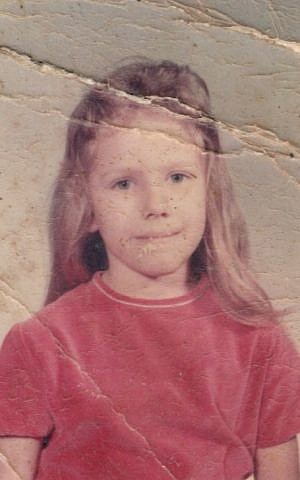From Indiana To The Upper West Side, A Pilgrim’s Progress
Angela Himsel’s long and winding spiritual road to Judaism.
On the Saturdays of her childhood, Angela Himsel and her 10 siblings, along with their parents, piled into an old Cadillac and would drive an hour and a half across Indiana to a rented hall in an old gray building. As faithful members of the Worldwide Church of God, they’d listen to preachers shout about the End of Days.
Yes, Saturdays. Following church doctrine, they celebrated Jewish holidays, eschewed medicine and doctors, didn’t eat pork or shellfish, tithed much of their minimal income to the church and believed that the world was about to end. And then, Jesus would arrive, and they — if they hadn’t sinned — had been chosen to witness that.
Himsel’s memoir, “A River Could Be a Tree” (Fig Tree Books), tells of her odyssey from rural Indiana to the Upper West Side of Manhattan, where she now lives; from a life bound by the tenets of the Worldwide Church to her conversion and embrace of Judaism. She’s a brave guide, full of humanity, honesty, Midwestern humility and humor. As she explains in an interview, she first fictionalized her story into a novel, and then spent a decade creating the non-fiction narrative, doing interviews and research to assure accuracy.
Read the entire article here: From Indiana To The Upper West Side, A Pilgrim’s Progress
UPDATED:
Did you have no inkling that the leaders were using money tithed by members to support their own lavish lifestyles, or that the leaders themselves were not adhering to church teachings?
I think my [Catholic and Lutheran] grandparents told my parents that it was just a cult that wanted their money. It’s an amazing thing that we have this ability to ignore what everyone around us is saying and just assume that they don’t know the mind of God, that they aren’t chosen, that they don’t understand. There are none so blind as those who will not see.
What is your view of the Worldwide Church of God now?
I find them despicable. They were responsible for so much suffering. Not just mental and spiritual suffering, but physical, as well. Because they insisted that you would be healed by faith, there were a lot of people who died as a result. That’s murder. I know that these people had free will, but their kids did not. The kids were at the mercy of their parents’ choices and decisions, and that still goes on today in various churches and religions. Any church that would deny children access to healthcare is not exactly Godly, let’s just say that.

Angela Himsel’s sister Abby, who died at age 13. (Courtesy)
Your own sister Abby died at 13 after suffering from an apparent heart ailment for several years. Your parents relied only on faith healing, yet you do not express any anger or resentment toward them.
I think that they did take her to the doctor after she got sick. And I also think that the doctors in Jasper were not great. My opinion is that she was never [properly] diagnosed . I don’t recollect them taking her to Indianapolis to see specialists. I think my parents did try to get medical care at the beginning, but they did not pursue it any further. They just let it go on for years.
I don’t blame my parents because they actually believed that God would heal Abby. From their perspective, they were getting the same thing as surgery. They really did. They believed it. It is heartbreaking.
Amazon review:
How does a woman who grew up in rural Indiana as a fundamentalist Christian end up a practicing Jew in New York?
Angela Himsel was raised in a German-American family, one of eleven children who shared a single bathroom in their rented ramshackle farmhouse in Indiana. The Himsels followed an evangelical branch of Christianity—the Worldwide Church of God—which espoused a doomsday philosophy. Only faith in Jesus, the Bible, significant tithing, and the church's leader could save them from the evils of American culture—divorce, television, makeup, and even medicine.
From the time she was a young girl, Himsel believed that the Bible was the guidebook to being saved, and only strict adherence to the church's tenets could allow her to escape a certain, gruesome death, receive the Holy Spirit, and live forever in the Kingdom of God. With self-preservation in mind, she decided, at nineteen, to study at The Hebrew University in Jerusalem. But instead of strengthening her faith, Himsel was introduced to a whole new world—one with different people and perspectives. Her eyes were slowly opened to the church's shortcomings, even dangers, and fueled her natural tendency to question everything she had been taught, including the guiding principles of the church and the words of the Bible itself.
Ultimately, the connection to God she so relentlessly pursued was found in the most unexpected place: a mikvah on Manhattan's Upper West Side. This devout Christian Midwesterner found her own form of salvation—as a practicing Jewish woman.
Himsel's seemingly impossible road from childhood cult to a committed Jewish life is traced in and around the major events of the 1970s and 80s with warmth, humor, and a multitude of religious and philosophical insights. A River Could Be a Tree: A Memoir is a fascinating story of struggle, doubt, and finally, personal fulfillment.



